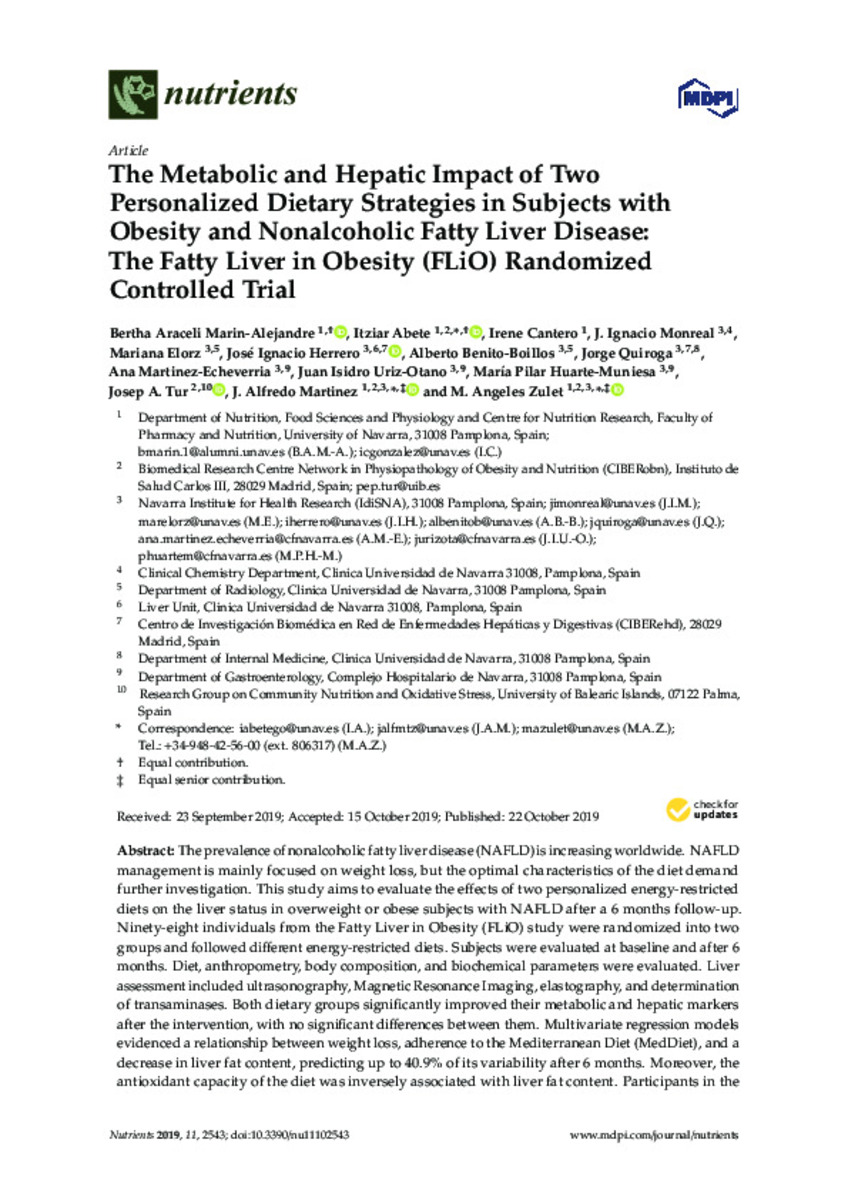The Metabolic and Hepatic Impact of Two Personalized Dietary Strategies in Subjects with Obesity and Nonalcoholic Fatty Liver Disease: The Fatty Liver in Obesity (FLiO) Randomized Controlled Trial
Palabras clave :
Materias Investigacion::Ciencias de la Salud::Nutrición y dietética
AHA
FLiO
Mediterranean Diet
NAFLD
Obesity
Dietary intervention
Fatty liver
Fecha de publicación :
2019
Nota:
This article is an open access article distributed under the terms and conditions of the Creative Commons Attribution (CC BY) license (http://creativecommons.org/licenses/by/4.0/).
Cita:
Marin-Alejandre, B.A. (Bertha Araceli); Abete, I. (Itziar); Cantero-González, I. (Irene); et al. "The Metabolic and Hepatic Impact of Two Personalized Dietary Strategies in Subjects with Obesity and Nonalcoholic Fatty Liver Disease: The Fatty Liver in Obesity (FLiO) Randomized Controlled Trial". Nutrients. 11 (2543), 2019, 1 - 16
Aparece en las colecciones:
Estadísticas e impacto
0 citas en

Los ítems de Dadun están protegidos por copyright, con todos los derechos reservados, a menos que se indique lo contrario.







